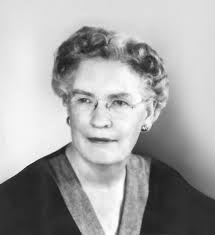Click here to view a video recording of this CLGS Lecture!
Queer Crip Revelation: Disability Dance, Jewish Text, and the Sacred Potency of Difference
with Professor Julia Watts Belser
The 13th Annual CLGS Georgia Harkness Lecture
Recorded on 20 October 2022
In this CLGS lecture, Professor Julia Watts Belser probes the embodied ethics and spiritual insights of Claire Cunningham’s Thank You Very Much, a contemporary dance performance that brings queer disability culture into provocative conversation with the glittering world of Elvis tribute artists.
Using disability dance to surface unexpected liberatory possibility within biblical and rabbinic Jewish texts, this lecture bears witness to the violence arrayed against queer and disabled lives and also claim the sacred potency of queer disability joy—illuminating the revelatory power of the choice to unfurl the brilliance of our embodied difference.
Julia Watts Belser (she/her) is a rabbi, scholar, and spiritual teacher who works at the intersections of disability studies, queer feminist Jewish ethics, and environmental justice. She is an associate professor of Jewish Studies at Georgetown University, Senior Research Fellow at the Berkley Center for Religion, Peace, and World Affairs, and core faculty in Georgetown’s Disability Studies Program. She’s the author of several scholarly books including, most recently, Rabbinic Tales of Destruction: Gender, Sex, and Disability in the Ruins of Jerusalem (Oxford University Press, 2018). Her next book, Breath and Bone: Disability Politics and the Bible, will be coming out in 2023 with Beacon Press.
A longtime activist for disability and gender justice, she currently directs an initiative on Disability and Climate Change that aims to analyze and address the disproportionate impact environmental risk and climate disruption have on disability communities. A powerful advocate for disability arts, she collaborates with internationally recognized queer and disabled artists in the US and around the world. Her work brings queer disability arts and activism into conversation with Jewish culture—and creates spaces for queer and disability communities to claim and celebrate our insights into the sacred.
This 13th Annual CLGS Georgia Harkness Lecture was co-sponsored by Congregation Sha’ar Zahav, a Reform synagogue in San Francisco, California
and The CLGS Jewish Roundtable
The CLGS Georgia Harkness Lecture
 In the fall of 2010 CLGS inaugurated The CLGS Georgia Harkness Lecture, the second of the Center’s two named lectures which is presented every October. (The CLGS John E. Boswell Lecture, offered every April, was launched in 2008.)
In the fall of 2010 CLGS inaugurated The CLGS Georgia Harkness Lecture, the second of the Center’s two named lectures which is presented every October. (The CLGS John E. Boswell Lecture, offered every April, was launched in 2008.)
Georgia Harkness (1891-1974) was a pioneering theologian in the Methodist tradition, a leading figure in the ecumenical movement, and the first woman hired to teach theology at a Christian seminary. Harkness focused her teaching and writing (more than thirty books and many articles) on the practical application of theology to the pressing social issues of her day, ranging from women’s rights to racism, war and peace, international relations, and, later in her life, full civil rights for gay and lesbian people. Harkness retired from teaching after serving on the faculty at Pacific School of Religion from 1949 to 1960.
The passion Harkness brought to her work of making vital theological connections among wider cultural and political issues, her keen interest in employing poetry and the arts to her theological work, and her firm commitment to civil rights and social justice — all of this contributed to PSR’s “tradition of boldness” — a tradition that shapes the ongoing work of PSR’s Center for LGBTQ & Gender Studies in Religion.





